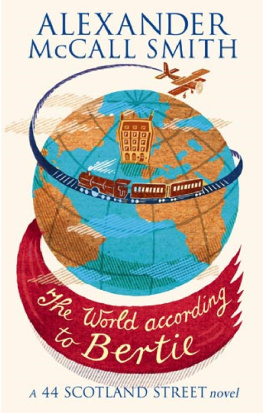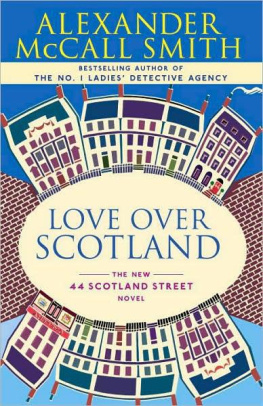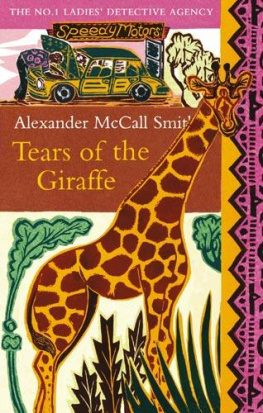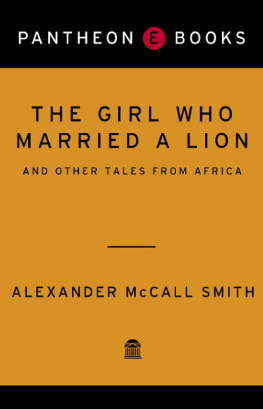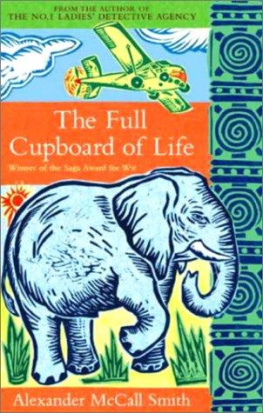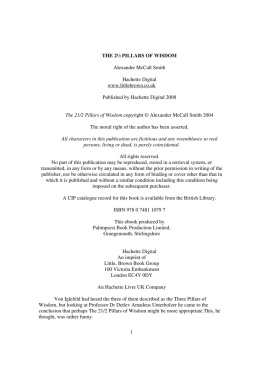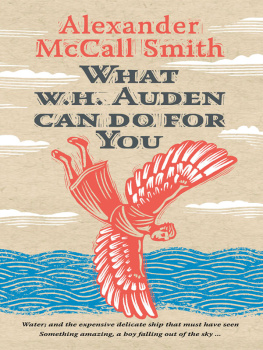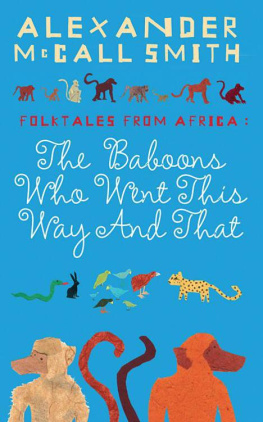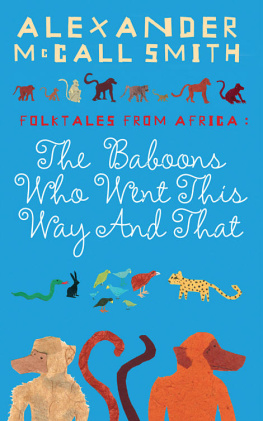Alexander Mccall Smith - The Forgotten Affairs of Youth
Here you can read online Alexander Mccall Smith - The Forgotten Affairs of Youth full text of the book (entire story) in english for free. Download pdf and epub, get meaning, cover and reviews about this ebook. year: 2011, publisher: Pantheon Books, genre: Prose. Description of the work, (preface) as well as reviews are available. Best literature library LitArk.com created for fans of good reading and offers a wide selection of genres:
Romance novel
Science fiction
Adventure
Detective
Science
History
Home and family
Prose
Art
Politics
Computer
Non-fiction
Religion
Business
Children
Humor
Choose a favorite category and find really read worthwhile books. Enjoy immersion in the world of imagination, feel the emotions of the characters or learn something new for yourself, make an fascinating discovery.

- Book:The Forgotten Affairs of Youth
- Author:
- Publisher:Pantheon Books
- Genre:
- Year:2011
- Rating:4 / 5
- Favourites:Add to favourites
- Your mark:
- 80
- 1
- 2
- 3
- 4
- 5
The Forgotten Affairs of Youth: summary, description and annotation
We offer to read an annotation, description, summary or preface (depends on what the author of the book "The Forgotten Affairs of Youth" wrote himself). If you haven't found the necessary information about the book — write in the comments, we will try to find it.
Alexander Mccall Smith: author's other books
Who wrote The Forgotten Affairs of Youth? Find out the surname, the name of the author of the book and a list of all author's works by series.
The Forgotten Affairs of Youth — read online for free the complete book (whole text) full work
Below is the text of the book, divided by pages. System saving the place of the last page read, allows you to conveniently read the book "The Forgotten Affairs of Youth" online for free, without having to search again every time where you left off. Put a bookmark, and you can go to the page where you finished reading at any time.
Font size:
Interval:
Bookmark:
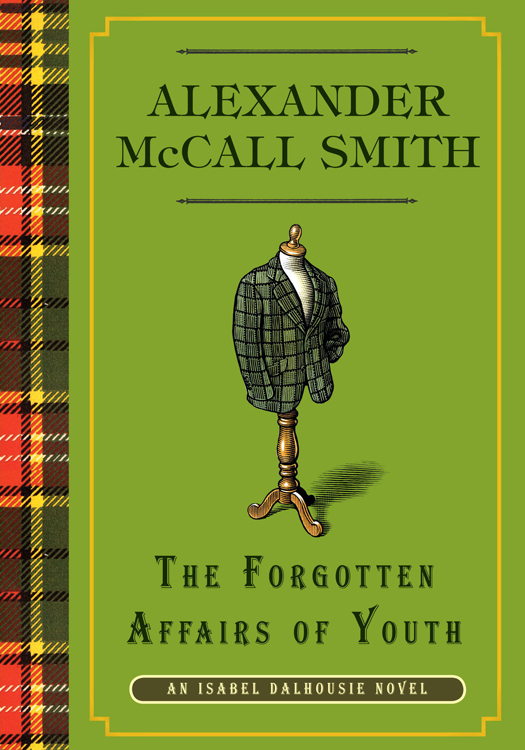
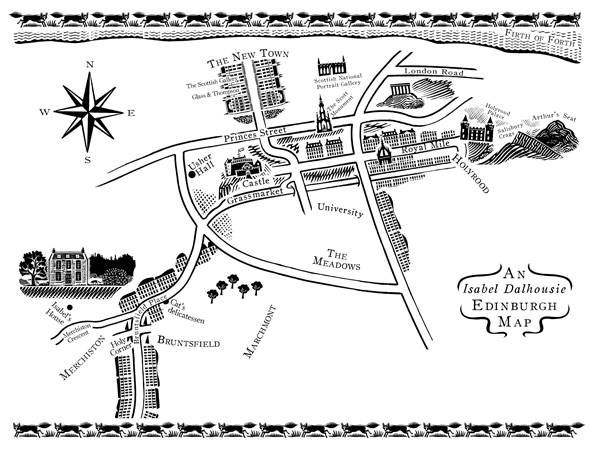
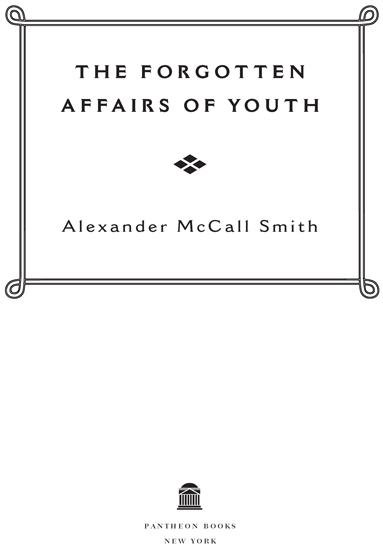
This is a work of fiction. Names, characters, places, and incidents either are the product of the authors imagination or are used fictitiously. Any resemblance to actual persons, living or dead, events, or locales is entirely coincidental.
Copyright 2011 by Alexander McCall Smith
All rights reserved. Published in the United States by Pantheon Books, a division of Random House, Inc., New York. Originally published in Great Britain by Little, Brown, an imprint of Little, Brown Book Group, an Hachette UK Company, London.
Pantheon Books and colophon are registered trademarks of Random House, Inc.
Excerpts from poems by W. H. Auden appear courtesy of Edward Mendelson, Executor of the Estate of W. H. Auden, and Random House, Inc.
copyright 2011 by Iain McIntosh
Library of Congress Cataloging-in-Publication Data
McCall Smith, Alexander, [date]
The forgotten affairs of youth / Alexander McCall Smith.
p. cm.
eISBN 978-0-307-90679-3
1. Dalhousie, Isabel (Fictitious character)Fiction. 2. Women philosophersFiction. 3. Edinburgh (Scotland)Fiction. I. Title.
PR6063.C326F67 2011 823'.914dc23 2011023394
www.pantheonbooks.com
Cover illustration by Bill Sanderson
Cover design by Linda Huang and Brian Barth
First United States Edition
v3.1
This book is for Diane Martin, editor and friend.

I SABEL DALHOUSIE, a philosopher, lowered her copy of the Scotsman newspaper and smiled. On the other side of the breakfast table, buttering a slice of bread for their young son, Charlie, who was now two and a half, and hungry, was her lover and fianc, Jamie. She loved them both so much, so much. They were her worlda tousle-headed little boy and a bassoonist; more important to her than anything elsemore than the complete works of Kant and Aristotle, more than the city she lived in, more than Scotland itself.
Something amusing? Jamie asked.
There was normally little to laugh at in the papers. Political scandals, economic disaster, suffering in all its familiar formsthese were the daily staple of a disaster-prone, uneasy planet. Add to that the seeming inability of the Scottish rugby team to defend itself against the predations of a group of hefty New Zealanders on a summer tour, and the newspapers offering for that day was bleak.
Isabel had read out to Jamie the opening paragraph of the rugby report, in which the Scottish sides performance had been described in less than glowing terms. Jamie, however, had listened with only half an ear; he liked tennis and golf, and found that games involving a ball any larger than those used in these two games held little attraction for him. For her part, although she did not follow sport at all closely, Isabel enjoyed reading about rugby, a game that struck her as being one of the few remaining tribal rituals on offer to males in modern societies. An anthropologist might have a field-day in pursuing this interpretation; might note with some interest the famous rugby haka of the New Zealanders, as their players lined up and challenged the other team with thumbed noses and intimidating grunts; might listen to the Scottish supporters singing Flower of Scotland, with its fourteenth-century military references (fourteenth century!); might remark upon the wailing bagpipes at the beginning of the game and the painted faces and
And there was another, more personal reason for her interest: as a schoolgirl she had been in love, at a safe distance, with a boy who had seemed impossibly handsome, even when covered in mud and in a heaving scrummage. Some men were like that, she mused: they were much improved by mud.
But it was not the rugby news that made her laugh; it was a small item in the papers political diary.
Very amusing, she said to Jamie. Theres a story here about a Glasgow politician who held a surgery. You know those consultation sessions they holdthey call them surgeries; constituents can drop in and tackle them about local problems.
Jamie nodded. I went to see my local Member of Parliament once. He was actually very helpful.
Yes. Thats what an MPs surgery is for. But this one apparently had a constituent coming in to complain about a sore nose. Can you believe it? A sore nose.
Jamie smiled. Well, I suppose if you call it a surgery
Yes, said Isabel. But surely people understand that its a politician theyre seeingnot a doctor. She paused. Or are there people who really think that their Member of Parliament should be able to do something about their aches and pains?
She thought there were; once the state in its benignity embraced us, then the routes by which it dispensed its succour could easily be confused.
She picked up the newspaper. People are pretty strange, arent they? They can be so well, I suppose theres no other word for it but misinformed.
Yes, said Jamie. They can. I was reading somewhere or other about a woman who wrote to an advice column asking whether a baby adopted from Korea would speak Korean when he grew up, even if raised elsewhere.
Shes not alone, said Isabel. Natural language. Scottish kings have believed in thatJames IV, I think, even conducted an experiment. He had a couple of children taken off to Inchkeith Island and looked after by a nurse who was dumb. He wanted to find out what language children would speak naturally if they werent exposed to Englishor, rather, to Scots. He thought it would be Hebrew.
And it turned out to be Korean?
Isabel smiled. It was nothing, I imagine. Just sounds. Or, as Walter Scott suggested, they might have sounded like birds. There are lots of birds on Inchkeith Island.
Jamie wondered whether the children might have invented a language.
Not from scratch, said Isabel. Or only a rudimentary one.
Jamie passed a piece of buttered bread to Charlie, who seized it, examining it intently before putting it into his mouth.
Rudimentary? So theyd have no grammarjust nouns for the various objects? Not that theyd need many. The sea. Birds eggs. Food. Fish.
Yes, said Isabel. And a word for Scotland too, perhaps. Theyd look across the firth and see the mainland, and they might give it a name.
He shook his head. I find that story rather sad, he said.
Isabel put the newspaper down on the table. She thought about the children on the island, imagining them huddled together in the winter, with no words to describe their misery. A familiar question occurred to her: if you had no language, then what form did your thoughts takeif you thought at all? Of course you thoughtshe had never had any difficulty with accepting thatbut how limited would your thoughts be in the absence of any words to express them?
She looked at Charlie and smiled. He returned the smile. He had no words for what had just passed between them, she told herself; they had engaged with one another, and affection and amusement, tinged with a note of conspiracy, had been in the mind of each. These were feelings, though; not articulated intentions or thoughts as such. Or had Charlie thought, Shes smiling at me, even if he as yet had no word for smile? It was, she decided, rather like looking at an unfamiliar stretch of landscape; one might not know its name but one could still be said to know
Font size:
Interval:
Bookmark:
Similar books «The Forgotten Affairs of Youth»
Look at similar books to The Forgotten Affairs of Youth. We have selected literature similar in name and meaning in the hope of providing readers with more options to find new, interesting, not yet read works.
Discussion, reviews of the book The Forgotten Affairs of Youth and just readers' own opinions. Leave your comments, write what you think about the work, its meaning or the main characters. Specify what exactly you liked and what you didn't like, and why you think so.

